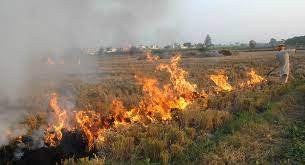
In a decisive move addressing the recurrent crisis of toxic air engulfing Delhi, the Supreme Court delivered stern directives to the governments of Delhi, Punjab, and Uttar Pradesh. Amid the haunting blanket of pollution, the Court’s stringent orders emphasized accountability and urgent action to combat the hazardous air quality in the national capital.
The bench, presided over by Justices SK Kaul and S Dhulia, unequivocally tasked the Aam Aadmi Party-led governments of Delhi and Punjab with immediate measures to curb the burning of agricultural waste. Expressing concern over the severity of the situation, the Court underscored, “This is the most polluted November in six years… the problem is known, and it is your job to control it.”
The Court’s rebuke extended to the Delhi government’s delayed funding of the crucial Delhi-Meerut RRTS (regional rapid transport system). In a move highlighting accountability, the bench ordered the diversion of funds from the AAP’s advertising budget to meet the project’s financial requirements, firmly stating, “You can’t take us for granted.”
Previously, the Court had reprimanded the Delhi government for failing to contribute funds to a rail network aimed at alleviating vehicular traffic. The government’s inability to provide the allocated funds led to a directive to disclose expenditures on advertisements over the last three years. Failure to comply within a week could result in funds being redirected from the advertising budget.
However, the Court exhibited a more empathetic approach toward farmers in Punjab, acknowledging their challenges and advocating for their representation in the ongoing hearing. Noting the critical issue of stubble burning, the Court remarked, “The farmer is being made a villain… and he is not being heard from. He must have some reason to burn this stubble.”
Recognizing the need for proactive measures, the Court suggested incentivizing farmers in Punjab, drawing parallels with Haryana’s successful approaches. The bench stressed the importance of providing support to small landholding farmers to dissuade stubble burning, proposing that the state should fund machinery entirely, subsequently utilizing the produced material for commercial purposes.
As the national capital grapples with an alarming Air Quality Index (AQI) hitting ‘very poor’ levels, various factors including farm fires, Diwali fireworks, vehicular traffic, and construction dust contribute to the toxic air crisis. Punjab reported 634 farm fires in a single day, underscoring the persistent challenge despite warnings.
The Court’s resolute stance underscores the gravity of the situation, urging immediate action and collective responsibility to address the pressing issue of air pollution in Delhi and its adjacent regions.
Sources By Agencies

